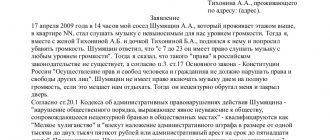A homeowners' association (HOA) is one of the ways to implement the management of housing associations, permitted and regulated by the legislation of the Russian Federation. Despite the fact that the HOA is a non-profit structure, its activities must be subject to accounting rules: accounting and tax.
What are the nuances of accounting operations for HOAs, what kind of transactions are they made out, what are the subtleties of taxation, we will analyze in the article.
How does an HOA keep records of income and expenses ?
Why are HOAs created?
These associations arise to improve the efficiency of management of residential real estate complexes.
FOR YOUR INFORMATION! HOAs are more popular for managing large buildings consisting of many apartments. But the law has nothing against uniting owners of nearby private housing into such a system.
Problems that HOAs are designed to solve:
- ensure that housing is maintained in proper condition;
- improve living conditions in your community;
- promptly resolve emerging problems within their competence.
Is it necessary to use CCP when making payments to HOAs for providing services to their members and accepting payments for residential premises and utilities?
To solve these problems, an HOA can engage in commercial activities to generate income and fill its fund.
Such activities could be:
- rental of premises;
- construction of additional buildings, structures, and other real estate objects;
- maintenance and repair of HOA property.
Sometimes an HOA takes actions that are directly aimed at generating income rather than benefiting the property and residents of the HOA. However, the income received will also be used for its intended purpose. Commercial activities that generate income for the HOA may be as follows:
- concluding an agreement for advertising on houses and other property located in the HOA;
- agreements with companies providing Internet, cable television, etc.;
- rental of non-residential premises owned by the HOA;
- contracts with residents for the provision of household services, etc.
IMPORTANT! The HOA accounting policy from ConsultantPlus is available here
Funds received from the commercial activities of the HOA are recognized as income. Sources of funds for the activities of the HOA, in addition to income from commerce, can be:
- membership fee;
- entrance fees;
- current payments;
- subsidies from the budget;
- premises rental fee;
- sponsorship, etc.
The funds received should be spent exclusively for the stated purposes, acting in the interests of the HOA members. This may include carrying out repair work, improving the surrounding area, organizing security, additional construction, etc. The funds from which funds are taken are specified in the HOA Charter. Residents' current payments are usually spent on utilities.
NOTE! All funds received by the HOA are not income and cannot be used other than in accordance with the directions of the Charter.
Management techniques
For accounting within a partnership, only one method is typical - this is the fiscal standard accounting method.
This technique is implemented as follows:
- Collections from the population.
- Calculation of membership dues for the needs of major repairs.
- Calculation of utility payments to premises owners.
- Payment of all submitted invoices from suppliers.
- Calculation of home maintenance costs.
- Other costs that are also required to be accrued.
You can learn about how to conduct an audit of a HOA, as well as in what cases an inspection by regulatory authorities will be required from our articles.
Why does HOA need accounting?
From a legal point of view, a homeowners' association is a legal entity. As in any organization, in a non-profit association, activities involve financial dynamics, and therefore are subject to strict accounting and tax accounting.
The creation and operation of HOAs is regulated by relevant legislative acts, such as:
- Art. 135, 136, 148 of the Housing Code of the Russian Federation;
- Federal Law No. 402-FZ dated 06.12. 2011 “On Accounting”;
- Accounting Regulation No. 106n “Accounting Policy of the Organization” PBU 1/2008, approved by Order of the Ministry of Finance of the Russian Federation 06.10. 2008 - in those parts that do not contradict the above Federal Law;
- Order of the Ministry of Finance of the Russian Federation No. 66n “On the forms of financial statements of organizations” dated 02.07. 2010;
- internal accounting policy of the organization.
Based on these regulatory documents, the HOA must keep accounting records and be subject to taxation.
Accounting in HOAs is designed to solve the following problems:
- control over cash flows;
- reflecting finances in correct accounting accounts;
- formation of funds and distribution of received funds.
Since the HOA, from the point of view of legislation, is a legal entity, it must have its own governing body, which means it must have on its staff persons who perform the duties of an accountant: keep records and promptly provide data to the tax authorities, the Pension Fund, and statistical authorities.
Procedure for challenging a board decision
If residents disagree with the estimate, the only way to react will be to remove the current board of the company with subsequent compensation for damages from the perpetrators. In this case, protecting the interests of residents is possible only in court. There is no other way to solve the problem - the proposals of the general meeting will not be enough.
Important! Even a legally illiterate citizen can and should be interested in the activities of the management company. To do this, you need to study housing legislation and the HOA charter, only after submitting a request.
Law firms operate in Russia. One of the areas of their work is resolving controversial issues with management organizations. You can get a free consultation from them, which may help solve your particular problem without involving the judiciary.
HOA and accounting nuances
Accounting includes an analysis of the economic activities of the HOA and the generation of the necessary documentation.
Features of accounting in HOAs
Legally, accounting in an HOA is no different from accounting for any non-profit organization. In practice, there are a number of nuances that should be observed.
- Any reporting implies a certain control period. In HOAs it is usually a year. It is necessary to indicate how the financial condition of the organization has changed over this period of time. The annual report is allowed to the attention of any member of the HOA, since no one has the right to hide the profit of the partnership from its owners.
- In order to correctly plan costs and provide for income for the next period, the accounting department must, based on the results of the previous year, draw up an estimate for the coming year and approve it at the general meeting. This estimate will become the basis for future accounting.
- The estimate must be published (on the HOA website and/or on a federal resource), and then reported on its implementation to the territorial housing inspection (Order of the Ministry of Construction dated December 22, 2014 No. 882/pr).
HOA accounting reporting
As stated by Federal Law No. 402, the financial statements of the Partnership as a non-profit association must include the following documents:
- balance sheet (form 4) – once a quarter;
- a report confirming the intended use of finances – annually;
- applications.
IMPORTANT! If the HOA uses the simplified taxation system (STS), then reporting can be done without accounting applications, limiting itself to the first two points.
Additionally, mandatory information is submitted to the Pension Fund at the place of registration: individual data and form RSV-1.
The main financial document of the HOA, on the basis of which the balance sheet is drawn up, is the estimate of income and expenses, which is compiled annually and approved at the general meeting of the HOA members. Any homeowner can view the financial dynamics report.
Reflection on the balance sheet of obligatory receipts
Payments transferred by HOA members as payment for utilities, entrance fees, and other types of payments accepted by the charter are not recognized as income of the association. They should be taken into account as funds received for targeted financing and reflected on the balance sheet in account 86 “Targeted financing”. A debit can be accounts 50 “Cash” or 51 “Settlement accounts”, operating in correspondence with credit 76 “Settlements with various debtors and creditors”.
Reflection on the balance sheet of subsidies from the budget
The budget can only subsidize targeted funding. Account 86, intended to reflect it, can be supplemented with such subaccounts as:
- 86-1 “Targeted contributions of homeowners”;
- 86-2 “Compensations (subsidies) for housing and utilities”;
- 86-3 “Grants from the local budget”;
- 86-4 “Discounts for preferential categories of the population”;
- 86-5 “Receipts from entrepreneurial (economic activities)”;
- 86-6 “Other targeted income”
Accounting for income from commercial activities of HOAs
An HOA can conduct such activities, as this contributes to the implementation of its goals and objectives (Clause 4, Article 50 of the Civil Code of the Russian Federation). This could be the provision of repair services, performance of various works through the actions of full-time electricians, plumbers and other craftsmen. Accounting for such activities should be kept separately from other types of income and expenses. This will allow you to separate the taxable part of finances and that which is not considered profitable and for this reason is not included in the tax base.
Revenue received from the provision of services and performance of work is income from ordinary activities. To reflect it, the credit of account 91 “Sales” with subaccount 90-1 “Revenue” is intended, corresponding to accounts 62 “Settlements with buyers and customers” or a subaccount to account 76 “Settlements with various debtors and creditors”.
Reflection of HOA costs
The intended use of HOA funds is carried out through account 20 “Main production”, to which sub-accounts are opened for various areas of the main activity, as well as commercial work and services.
Wiring example
Let’s imagine that the HOA has an electrician on its staff, whose work is paid by the piece, and who has replaced the wiring for one of the residents. The materials were purchased by the resident himself. The man paid for the electrician’s work immediately after completion according to the tariffs established by the HOA. Here's what needs to be shown on the balance sheet:
- debit 50, credit 62 - receiving payment from the tenant - customer;
- debit 62, credit 90-1 – recognition of funds received as income;
- debit 90-3, credit 68 – VAT accrual on the cost of work performed;
- debit 20-2, credit 70 – calculation of piecework wages for a full-time electrician;
- debit 20-2, credit 69 – calculation of insurance premiums for the amount of labor remuneration;
- debit 90-2, credit 20-2 – write-off of the cost of work performed;
- debit 90-9, credit 99 - reflection of the financial result - profit.
In addition to the listed operations, the HOA’s balance sheet will reflect the costs of repairing common residential property and accounting for the organization’s fixed assets.
HOAs and domestic taxation
By default, after registration, an HOA, like any organization, is subject to the general taxation system. But she has every right to switch to the simplified tax system, and the majority chooses this option, since in this case accounting activities and reporting will be minimal.
Reporting documents submitted to INFS:
- simplified declaration;
- personal income tax return-2;
- average number of HOA members.
The HOA performs work and provides services to itself, and not to other parties, since its main activity is the maintenance and repair of its own residential premises, this is a direct indicator of the use of the simplified tax system. Funds received from this activity cannot be recognized as income, which means that there are nuances with the assessment of taxes on them.
Let's double-check again: they are not income :
- entrance fees;
- membership fee;
- share contributions;
- donations from philanthropists;
- sponsorship;
- reserves;
- government subsidies.
The following are income and subject to taxation:
- funds received as a result of the commercial activities of the HOA (sales and non-sales - Articles 249 and 250 of the Tax Code of the Russian Federation);
- mandatory payments for the maintenance, current and major repairs of residential property (letter of the Ministry of Finance dated May 5, 2006 No. 03-03-05/8);
- amounts received from anyone other than the founders and members of the organization.
Expenses for tax purposes are expenses that meet the criteria of clause 1 of Art. 252 of the Tax Code of the Russian Federation: economic feasibility and documentary evidence.
IMPORTANT! The source of funds is critical, even for the same purposes. For example, if finances are contributed by the owners of the HOA for major repairs, they are not subject to taxation. If the same finances are contributed by property owners who are not members of the HOA, this will be considered income and included in the tax base.
Like any organization using the simplified tax system, an HOA must choose one of the forms of taxation:
- pay personal income tax on all amounts recognized as income;
- choose the “income minus expenses” scheme.
If you do not choose a simplified taxation system during registration, the HOA will automatically end up on OSNO - the general system, where it is obliged to transfer to the budget all taxes and fees provided for by law and submit the necessary declarations on time. Therefore, you should be very careful when registering.
The main risk of HOA activity
From an accounting point of view, the main trouble that can threaten an HOA is bankruptcy. It occurs if there are not enough reserve funds in the account: since the HOA is a non-profit organization, in the event of unforeseen expenses, there is most often nothing to cover the shortfall. If this happens and it is not possible to save the HOA, bankruptcy may be one of the forms of its liquidation. This difficult decision must be made at a general meeting of HOA members. The law does not provide for any specific features of bankruptcy specifically for HOAs; the procedure is common for all organizations.
How often should homeowner meetings be held?
In accordance with the requirements of Russian legislation, holding such meetings of residents is strictly mandatory (Russian Housing Code, Article 45). It should take place not in the reporting year itself, but in the subsequent year (to be more precise, the annual reporting meeting of the HOA should be held in its second quarter - this requirement is stated in Federal Law No. 176 for 2015).
Also, in addition to the annual mandatory meeting, at the request of members of the board or individual groups of residents, unscheduled events of the same nature can be held. Their schedule is not planned in any way and their dates are assigned on an ad hoc basis.
The validity of meetings of this kind is determined by the presence of a quorum (both scheduled and unscheduled). It can only be achieved if at least half of the residents who are members of the partnership have attended the meeting.
If the turnout is less than 50%, the event must be rescheduled and held on an extraordinary basis. Also, in order to increase the turnout of members, the board is required to notify all residents in advance of the upcoming event in writing.
You can learn about the procedure for holding a general meeting of owners using the example of an apartment building in this video:










